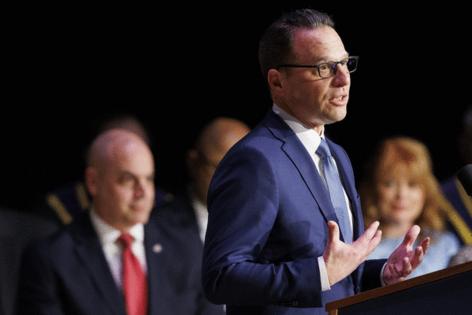All of Pennsylvania's federal funding is now unfrozen by the Trump administration, Gov. Josh Shapiro says
Published in News & Features
PHILADELPHIA — All of Pennsylvania’s frozen federal funds are accessible again, Gov. Josh Shapiro announced on Monday.
Shapiro said President Donald Trump’s administration released more than $2.1 billion in federal funds that had been frozen or on temporary hold, most of which were for environmental and energy projects.
The Democratic governor sued the Trump administration earlier this month over what he argued was an unconstitutional freeze of more than $2 billion in funds already approved by Congress to go to Pennsylvania for its efforts to reduce greenhouse gas emissions, cut utility costs for low-income residents, and plug abandoned oil and gas wells that are leaking pollutants into Pennsylvania communities, among other things.
“Those agreements are binding,” Shapiro said. “To put it simply, a deal is a deal. The Trump administration is legally required to provide these funds to Pennsylvania. That is why I took legal action to protect Pennsylvanians.”
Shapiro claimed that those funds have now been freed up as a result of his advocacy at the White House this weekend and his legal challenge. Some environmental funds started flowing to school districts across the country again last week, which was the first sign that the funds may start to be released again soon. The White House could not immediately be reached for comment about why the funds were unfrozen.
Shapiro said he spoke directly with Trump Cabinet officials while at a White House event, following his appointment to the Council of Governors, a little-known bipartisan panel of 10 state executives to coordinate federal-state partnerships and military response, among other things.
“I urged them to follow the law and to honor their agreements with Pennsylvania,” Shapiro said of his conversations with Trump Cabinet officials, but declined to get into specifics. “I can tell you that I was very direct with them, they were responsive to me, and as a result, Pennsylvania now has what is duly owed to us.”
Shapiro originally chose to sue after efforts by Pennsylvania’s congressional delegation to free up the funds were unsuccessful. Shapiro initially asked Pennsylvania’s new Attorney General Dave Sunday, a Republican, to sue the Trump administration. Sunday declined, so Shapiro chose to sue in his capacity as governor of Pennsylvania.
Despite the release of the federal funds, a spokesperson for Shapiro said the lawsuit will move forward “until we obtain a final judgment or binding agreement requiring the Trump Administration to comply with its legal obligations.”
Among the $2.1 billion in projects stopped by the funding freeze was a nearly $400 million grant-backed initiative intended to support industrial facilities in reducing their carbon emissions. Industry is the highest-emitting sector statewide and accounts for 30% of the state’s greenhouse gas emissions, according to the DEP.
The federal grant supporting the program is the second-largest ever received by Pennsylvania. Others include a $156 million grant earmarked for a solar accessibility program to help low-income homeowners lower their electric bills and reduce carbon emissions, as well as a $186 million weatherization program for low-income residents to help them make their homes more energy efficient and save on energy costs.
Many of the funds were approved as part of two of former President Joe Biden’s cornerstone achievements: the Inflation Reduction Act, which included a $370 billion investment to combat climate change, and the Infrastructure Investment and Jobs Act, a $1.2 trillion infrastructure bill that set aside hundreds of billions of dollars for energy and environmental projects.
State Rep. Elizabeth Fiedler (D., Philadelphia), the state House’s chair of the new energy committee, called the release of federal funds “a relief” in a statement Monday and applauded Shapiro’s work on the issue.
“The Trump administration’s attempts to govern through executive orders is both unconstitutional and a sign of weakness, and holding crucial funding hostage hurts working people most,” Fiedler added.
©2025 The Philadelphia Inquirer, LLC. Visit at inquirer.com. Distributed by Tribune Content Agency, LLC.







Comments